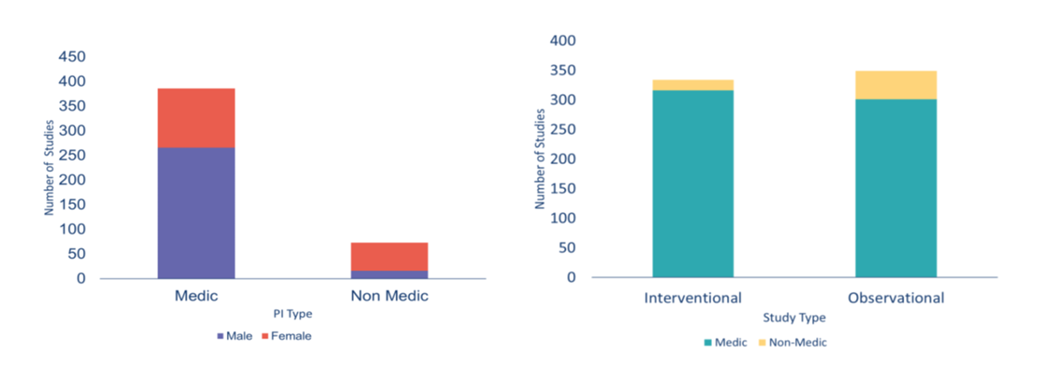South West Project: Barriers to Becoming a Principal Investigator (PI)

The Challenge
A major challenge for enabling people to have the opportunity to participate in research across the south west peninsula is having clinicians, both medical and non-medical, actively engaged in research either as Principal Investigators (PIs) or generating their own research as Chief Investigators (CIs). The lack of both Principal and Chief Investigators is becoming an increasing problem in both enabling people to participate in research and also enabling the south west peninsula achieving its full potential in delivering research.
Identifying a Solution
The approach was to develop a detailed understanding of the views of the workforce on becoming a PI. Analysis of open studies, data from trusts, an online survey and interviews with staff (including occupational therapists, physiotherapists, clinical nurse specialists, managers, podiatry, mental health and research nurses - NMAHP) were all used to gather an understanding of the current PI workforce. The survey collected responses from both current PIs and staff that had not taken the PI role.
Our Findings

The qualitative interviews highlighted consistent themes that have a direct impact on how health care professionals view taking on a PI role.
- Personal Enthusiasm - Most took on the role because of self-motivation, goal directedness, perseverance, a positive mind-set and attitude towards research.
- Early career exposure - Ensuring early career exposure to research through academic studies or through professional training seemed to “sow the seed” for both Non Medical Allied Health Professionals (NMAHP) and medic professions.
- Culture of research – support to be PI - The support of management appeared crucial to developing opportunities to take on the PI role and was a major factor in uptake regardless of any background in research
- Training and education - It was felt that the learning curve was very steep for a PI and that a sub investigator role helped with that learning.
- Availability of opportunities - The lack of understanding of early career involvement in research delivery as opposed to research academia potentially limited the access to research exposure.
- Capacity to support the role - One of the main issues affecting the role was linked to capacity, time constraint issues and other work pressures.
- Lack of support for NMAHPs - There is a variation in the level of support offered to professionals considering a PI role.
- Lack of understanding of what the PI role entails - There were misconceptions around what the role is, what is expected, the time requirements, the responsibility and processes.
- Gender - Whilst gender did not come out as an overarching theme in the qualitative interviews it is clear from the data analysis that many female medics are not taking on the role.
Summary
The comments from the interviews show that there are many barriers to staff engaging in research either as Principal Investigators (PIs) or generating their own research as Chief Investigators (CIs). Many are based around perceptions of what is required to deliver research in the PI role. There is further work to be done to address these barriers and provide support and accurate information where it’s missing or not obvious.
Next Steps
The findings from this report informed a number of recommendations which have been used to develop an action plan designed to support and encourage staff to become PI’s.
Some of the key actions underway include:
- An awards ceremony to recognise and promote achievement is planned for March 2020. This will provide recognition to staff who have been research active and helped make a difference
- A buddying system for PIs - The workforce delivery managers within the region have set up a support system to provide mentorship. A central list of experienced PIs who are happy to provide mentorship for new or less experienced PIs is now available
- Engagement with senior leaders to promote the need for protected time for NMAHPs.
- Training and support packages – A PI specific research training day focussing on the practicalities of being a PI has recently taken place, feedback is currently being reviewed.
- A new AHP research support group for the region has been set up and is being led by one of our 70@70 leaders.
- A communications campaign targeting existing staff with information and about the ‘PI Pathway’ and the support available.
- Working with the deanery on training – this is currently on-going with the LCRN COO and CD.
- Setting up an EOI focus working group – To look at the EOI processes and how PIs are identified and studies shared to enable opportunities for the wider workforce.



